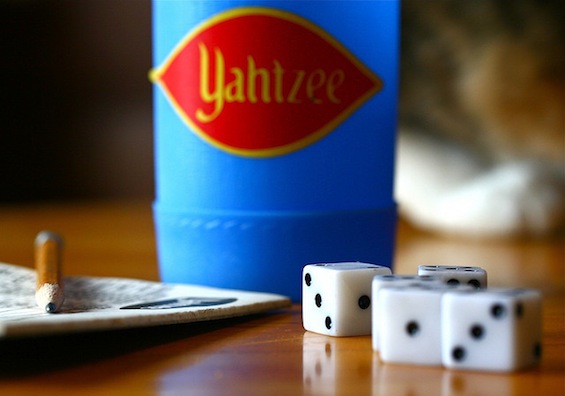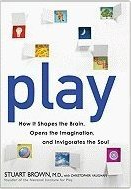Our “Incidentally” column shares English Teaching Resources & opinions about the state of education, from a teacher who has worked the systems for almost 25 years.
L.L. Barkat is K-12 permanently certified, holds a Masters in English & American Literature from New York University and a Master of Science for Teachers from Pace University, and has taught at every level of education preceding graduate school.
From college teaching of business and group dynamics to elementary teaching at a troubled urban district, from high school teaching at a private Hebrew day school to high school teaching at a leading U.S. public school, then on to K-8 of home educating two daughters (who are now enrolled in accredited distance learning schools for 9-12), Barkat has managed to form a few enthusiastic opinions about education along the way—and a whole lot of love for learning that she now pours into the business of Tweetspeak Poetry.
______
It’s true. I hated Barbie dolls. Board games? Boring. (I preferred Yahtzee or cards.)
On the other hand, the number line (perhaps a form of “play” or manipulative) almost made me fail first grade. Then someone got the bright idea to simply tell me that 5+8 was 13, and it turned out I could remember it. To this day, I do math in my head, without spacial imaging or finger counting (Yes, I have adult friends who finger count. Of course they do. They remember physically).
Math. That’s the one arena I regret with my own kids. I assumed they would be memorizers like me. Looking back, I now know they should have had manipulatives in our home education setting. Fortunately, I happened to notice that at some point my kids were being reduced to tears on an almost daily basis, doing math with me. I hired a tutor. She’s a Montessori teacher, and I credit her different approach with saving the day (and now my younger girl is such an algebra whiz that she writes simple algorithms for her coding passions and is thinking of going on to study Computer Science).
This is the great complication of standardized education: one man’s scintillating board game is another man’s boring. The whole language reading learner is stumped by phonics. And the phonics learner is left behind by whole language. Nonfiction now crowds the Common Core, to the fiction lover’s detriment. What’s a teacher to do? (If he or she even has the freedom to do so.)
I recommend three main elements:
1. Ask yourself: what are the real abilities we need to form here?
2. Ask your kids: are we having fun yet?
3. Offer as much choice as you possibly can (and still be able to smoothly manage your classroom).
What is a Real Ability in Academics?
Let’s stick with English for now (even though I raised the issue of math). A real ability in English would be:
1. See and hear patterns and structures
2. Form, evaluate, defend and collaborate on narratives
3. Have a deep understanding of and facility with language
We complicate the matter by dictating exactly how kids are allowed to learn and demonstrate pattern and structure recognition; narrative formation, evaluation, defense and collaboration; and language development. In fact, we work against them, by hemming them into smaller and smaller spaces of possibility for how to gain and demonstrate these real abilities. What a shame. Let them play Yahtzee, I say. (And yes, let them play Yahtzee as part of the English, not just the math, classroom.)
Is Yahtzee Really an English Game?
If we are focused on developing the real abilities of English, of course Yahtzee is an English game. Not convinced? Sit down and play it with your kids. Do this for a few days in a row. Take note of what begins to happen:
1. Teasing—a skillful form of language ability that will grow more and more sophisticated; just watch. And watch for the patterns that are both recognized and formed.
2. Story. You’re building memories together here, and the memories will very quickly develop into mini-narratives as you and the kids chat and cajole during the games.
3. Planning and evaluating, with attention to the motives and styles of team members (characters) involved.
4. Recognition of beginning, middle, end—and arguments over it, because some people just never want a “story” to end. In our house, there is negotiation over what should constitute the true end of the game.
5. Debate. Was that really a six? Or did she flip the two with her pinky? Should we allow her to fudge that into a three of a kind? On what basis? Whose fault is it that the Yahtzee was lost because the die bumped into someone else’s hand?
How about you?
Defend Yahtzee as an English (language arts) game, based on the premise that it helps develop the real abilities of English. I didn’t say much about the issue of pattern and structure recognition, so you could start there if you like. Or maybe you’d like to raise another “real ability” you believe is part of English. Think outside the box. Tell the world, “Incidentally, Yahtzee is an English game.”
_____
Teaching Tool: Yahtzee. No kidding.
Yahtzee is an excellent game for forming the “real abilities” necessary for English/language arts. And you get math points at the same time. Score.
Photo by Muffet, Creative Commons via Flickr. Post by L.L. Barkat, author of Rumors of Water: Thoughts on Creativity & Writing
Browse more Incidentally columns
- Poetry Prompt: In the Wild Secret Place - January 6, 2025
- Journeys: What We Hold in Common - November 4, 2024
- Poetry Prompt: My Poem is an Oasis - August 26, 2024



Donna says
I always loved the way the dice combinations were named…. full house… straights… chance… 2,3,4 or a kind… and of course YAHtzee DAHling is so MAHvelous! Seems ripe for word play… or animate the dice and let them have some conversations in the cup? Do they conspire? Do they choose which way to land before they get all shook up? Hmmmm… fun. 🙂